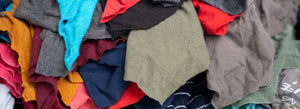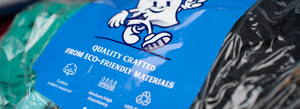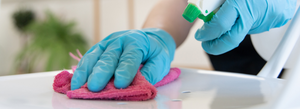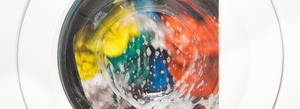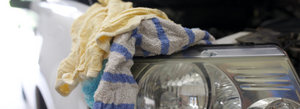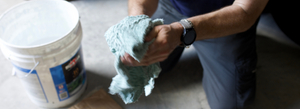Paper or Cloth? Which Rags Work Best?
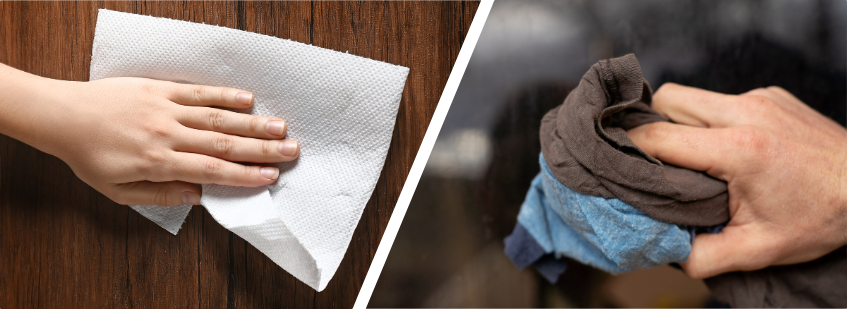
You know how grocery baggers sometimes ask, “Paper or plastic?”, as the cashier scans your groceries?
A lot of professional cleaners ask a similar question when it’s time to wipe down surfaces or clean spills — “Paper or cloth?”
So which one is better — paper or cloth cleaning rags?
When Paper Disposable Wiping Rags Shine
Paper wiping cloths do their job and then disappear into the trash. This means they’re never:
- Washed or dried: Time, energy, and resources usually spent laundering rags can be used elsewhere
- A source of germs: Because they’re disposable, paper rags don’t usually hang around long enough to spread germs
- Worn out: They’re used only once, so paper rags won’t have time to wear out
Of course, paper rags have some drawbacks too. We’ll touch on those next.
When Cloth Wiping Rags Are Better
Cloth cleaning rags have to be washed, dried, folded, and stacked, but they’re also:
- More cost-effective: You can use them over and over for years, which can make cloth rags and towels a better investment despite the time and money spent laundering them.
- Available in more types: Terry cloth, cotton, microfiber, T-shirt — cloth wiping rags come in a variety of materials and colors.
- Better for the environment: Each time they’re washed and used again, cloth rags keep more paper cloths out of the landfill.
Plus, cloth can typically work harder than paper without tearing.
The Right Answer Depends on Your Business
Paper and cloth wiping rags both bring a lot to the table. To decide between these two choices, companies have to decide which variables are most important: Convenience? Affordability? The environment? Durability?
For example, businesses that use a high volume of cleaning rags — a hotel or restaurant, for example — would spend a lot keeping paper cleaning rags in stock. The convenience of paper would probably cost too much, at least for day-to-day cleaning.
But businesses that are harder on rags — an auto repair shop, for example — may not mind the extra cost for paper cleaning cloths. The convenience of not trying to clean oil and grease out of their cloth rags would be worth the extra cost.
Business owners or managers should do the math for themselves. Find out whether the convenience and environmental impact of using paper is worth the cost. Our customer service staff has a lot of experience helping new clients make this decision.
Many Businesses Use Both Paper and Cloth
As is true with lots of decisions, there’s not always an either-or answer to the paper vs cloth debate. That’s one reason we stock quality paper wipers as well as a wide variety of cloth options.
Some of our clients keep paper rags around for some types of cleaning jobs but rely mostly on cloth rags. They may use paper rags to contain spills quickly or to gather up and toss away the bulk of a mess. Then they use cloth rags to clean and sanitize the area. Health care providers, for instance, might favor this approach.
Another nice in-between: Recycled cloth rags
A lot of our customers have become big fans of our recycled cloth rags over the past few years. These rags cost less because they’re made from reclaimed textiles — like T-shirts and pullovers — rather than newly woven materials.
These rags save money, but they also perform well. Since the material has already lived a full life before it becomes a rag, it’s already broken in. That means it’s already soft and absorbent.
Then there’s the environmental impact. Re-using textiles keeps them out of landfills and reduces the demand on new textiles.
Still Not Sure? Our Customer Care Team Can Help
If you’d like to discuss which type of rags to stock for your cleaning staff, please call us. Our customer service representatives have these kinds of conversations every day. We can help identify the product you need.
Once you’ve placed your order, you’ll get fast shipping to the Continental U.S.
Call us today to start the conversation.
- Brad Grossman
